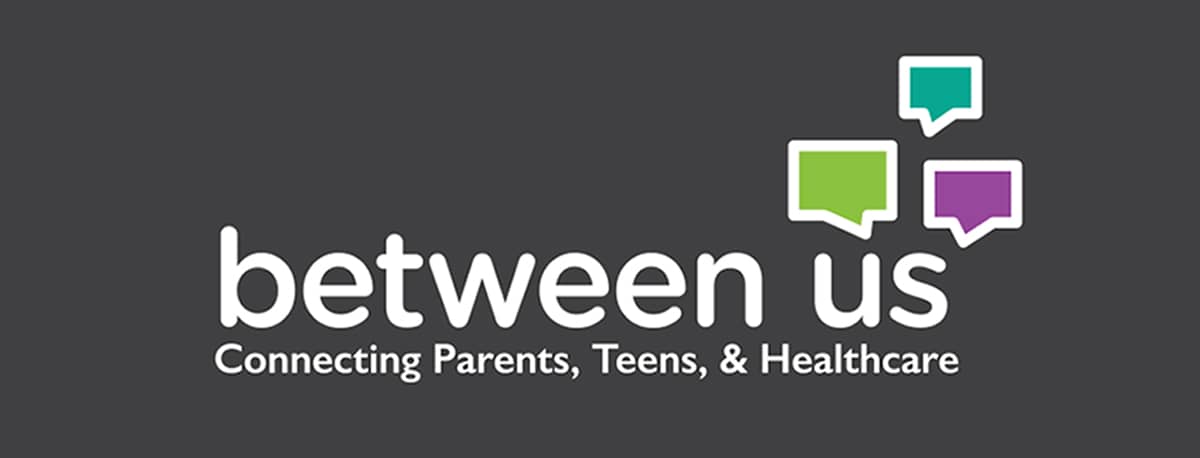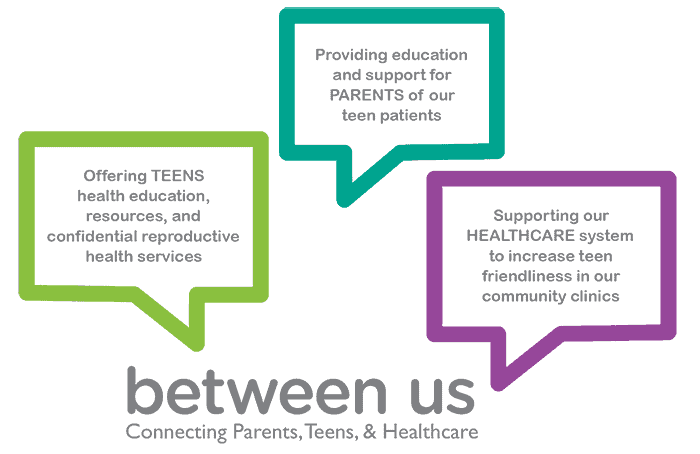
Welcoming teens and their parents while providing health education, support, care-coordination, resources, and confidentiality as needed
Call or text this number: 612-368-1611
Follow us on Instagram and Facebook.
Between Us is a program that creates access to confidential reproductive health care within Hennepin Healthcare’s Primary Care Community Clinics for youth and young adults up to 26.
Because of Minnesota’s Minor Consent Law, teens have the right to confidential care for certain kinds of care. The Between Us program is our effort to transform our primary care world at Hennepin Healthcare into a more teen-friendly environment, welcoming teens and their parents while providing confidential care when needed.

Between Us is a program that any provider in the community clinics- including pediatrics and women's health clinic- can use to provide sexual health-related confidential care to teens, including:
- Contraceptives
- Sexually transmitted infections (STI) testing and treatment
- Pregnancy tests
- Parents and caretakers of teens can also receive guidance and support raising teens during a Between Us visit.
- Health Educators
Between Us Health Educators
Our educators meet with teens who are in the clinics and provide sexual health and healthy youth development education, care coordination, support in navigating healthcare, resources, snacks, etc. Their goal is to make the teen and their caregiver's experience in the clinics pleasant and fruitful. They also offer a Sex Education class to teens ages 12-18 weekly at Brooklyn Park and Whittier Clinic.
Between Us thrives on creating an alliance between teens, their parents, and the Hennepin Healthcare providers to support them in this wonderful adolescence stage.
Between Us Events
Between Us is passionate about providing accurate and relevant information, covering topics from anatomy and physiology to safe sexual practices, emotional well-being, and more. Our teen educators offer both online and in-person sex education courses designed for individuals ages 12 to 18. For organizations interested in offering sexual health education for youth, find information about the curriculum for the MARS Project.
Locations
Golden Valley Clinic
Spring Gate Shopping Center
Women's Health and Wellness Clinic
Clinic & Specialty Center

